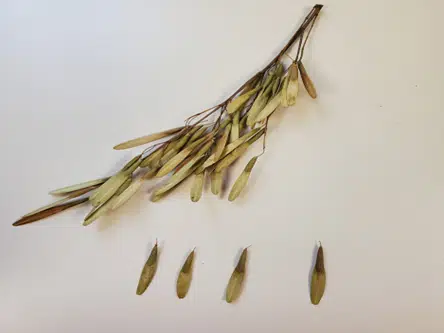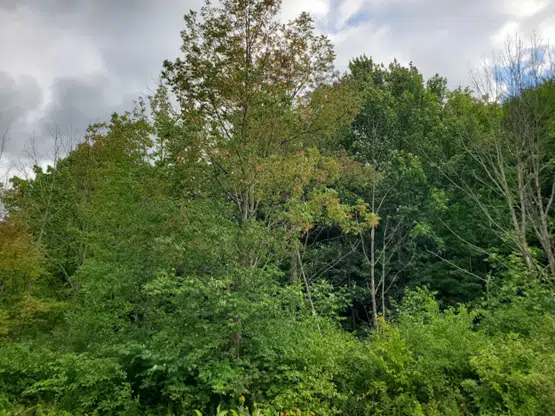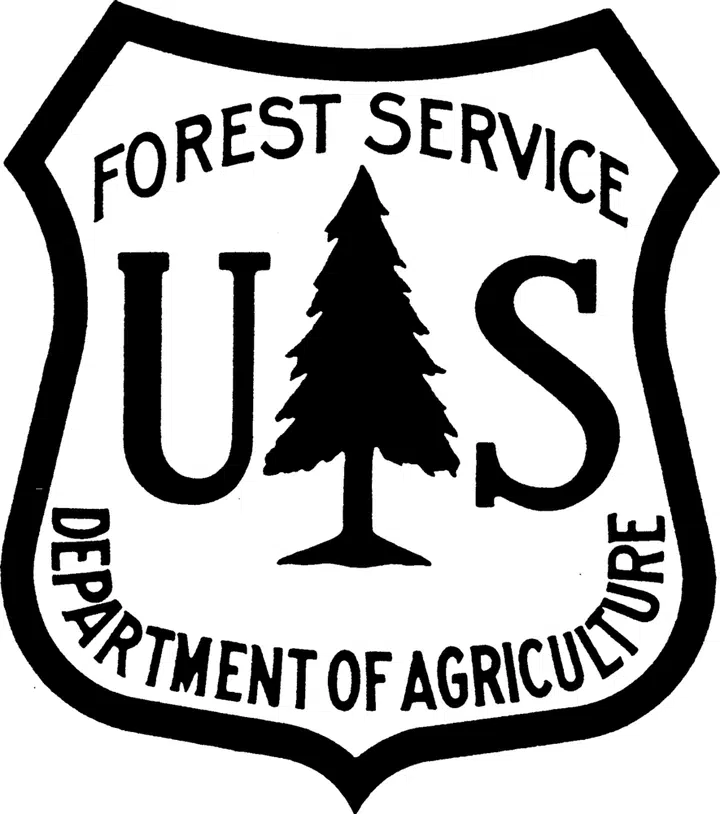Ash Trees Are Exploding with Seeds; Researchers Are Capitalizing on It
October 21, 2022

It’s a mast year for ash trees. Holden researchers are launching a new initiative to collect ash seeds from around the region.

When conditions are just right, certain trees will produce an exceptionally large number of seeds. The phenomenon is called masting, and, lucky for Holden forestry researchers working with ash trees, this year is a mast year for ash.
Holden scientists working with the Great Lakes Basin (GLB) Forest Health Collaborative have been working on studying what are called lingering ash. These are healthy, adult ash trees that have survived in areas where the emerald ash borer has decimated the majority of the population. We’re both studying these lingering trees to understand how they’re resistant to the invasive beetles, as well as collecting resistant individuals that we can breed for replanting efforts.
To capitalize on this years’ abundance, we launched a fall seed collection campaign across the Great Lakes region. The goal is to collect seeds from as many potentially resistant trees as possible, which we’ll use for research and breeding efforts.
More specifically, we’ve been targeting seed collections from areas in which the emerald ash borer was detected in 2010 or earlier, since those areas have likely already seen widespread tree death. This significantly increases the chances that any adult trees producing seeds could have resistance to the beetles.
It’s a big area — too big for researchers and forestry professionals to glean on their own. We figured we needed a broader call to action to get private landowners to check their properties for the trees and, if they’re able and willing, to collect and send us their seeds.
We sent out a press release to over 70 local news publications, asking them to relay our request for seeds to their audiences. At least six news outlets did, spanning upper Michigan, northern Illinois, and Ohio. Seeds from these areas have already started to arrive at Holden!
Meanwhile, Holden has our own orchard of ash trees, full of clones of lingering ash that have also been full of seeds. We are so thankful for Holden volunteers that have been helping collect them. Next, we’ll need volunteers to help clean the seeds and open up samaras to check for seed health.
The U.S. Forest Service breeding program has also been collecting reports of ash trees without seeds, as both green and white ash have both male and female trees. The Forest Service is launching a new initiative to use these seeds from various locations across the Midwest to create a new ash research orchard. This will preserve the individual variation from the different seed locations and allow researchers to take samples for ash-borer-resistance testing. Eventually, the orchard — or another orchard, planted with the seeds from this orchard — might even supply seeds for use in restorations.

Get involved!
Want to help out? Ash seed opportunities are listed in VicNet under “Forest Health Steward.” If you would like to help with one or more shifts, you can either sign up in VicNet or email shartley@holdenfg.org. If you don’t see the shifts in VicNet (they aren’t open to every volunteer), just email shartley@holdenfg.org, and she can add you to the position.
We would love your assistance cleaning twigs, leaves, bad seeds, and possibly small insects out of our bags of collected ash tree seeds. We’re hosting seed cleaning events at the Long Science Center at the Holden Arboretum at the following times:
- Sunday, October 23, 2-4pm
- Monday, October 24, 9-11am, 2:30-4:30pm
- Wednesday, October 26, 9-11am
- Thursday, October 27, 9-11am, 2:30-4:30pm
The Long Science Center is at 9717 Mitchells Mill Rd, Chardon Twp. Can’t make the times above? Arrange with Rachel Kappler to pick up and take seeds home to clean, sort, and bring back.
If you’re ready for an even deeper dive into ash seeds, we’re also looking for assistance assessing seed viability of different ash trees. This entails opening up small, 1-inch seeds by hand, looking for signs of healthy seeds (we’ll teach you), and recording the number of good versus bad seeds you find. Join us at the following times:
- Sunday, October 23, 2-4pm
- Wednesday, October 26, 9-11am
- Thursday, October 27, 9-11am, 2:30-4:30pm
There are just too many ash trees making too many seeds all across our region for researchers to sort through them all ourselves. We’d really love your help researching these ash seeds — together, we might just be able to breed trees that are resistant to emerald ash borers, and preserve the species for future generations to enjoy!













